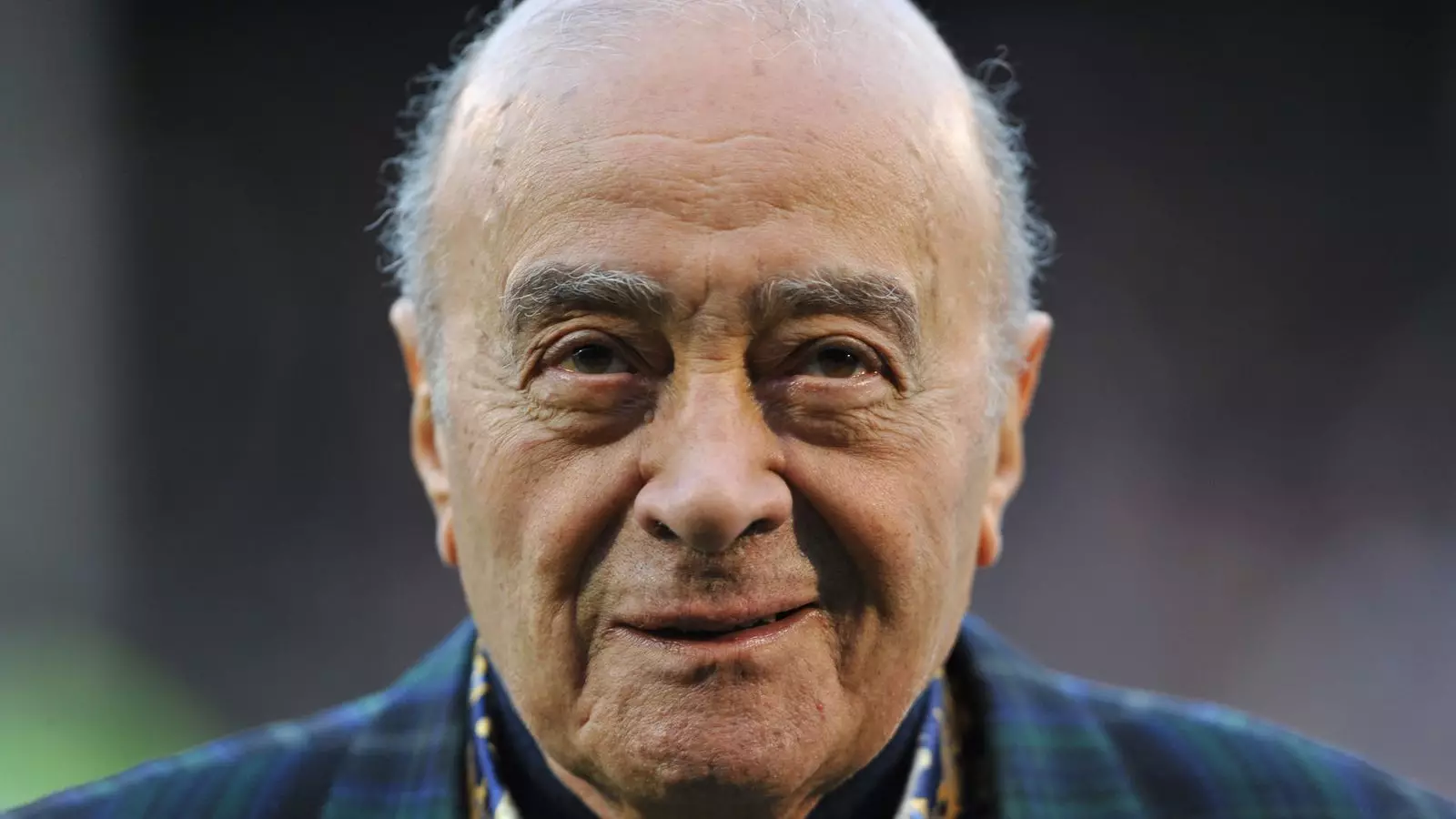The Crown Prosecution Service (CPS) has confirmed a disheartening series of shortcomings in its past handling of serious allegations against the late Mohamed Al Fayed, the former owner of Harrods. Having passed away at the age of 94, Fayed is now at the center of a growing wave of allegations of sexual abuse that paint a disturbing picture of his interactions with women, particularly those employed at his iconic department store. In the wake of recent reports, including a compelling BBC documentary that shed light on his controversial reputation, the newly unearthed testimonies bring into question the integrity of legal institutions that had two opportunities to take action against an alleged predator but chose not to.
Emerging from shadows, a number of women, who claim to have been victims during their tenure at Harrods, have accused Fayed of heinous acts, including sexual assault and rape. They describe a disturbing pattern of behavior where Fayed allegedly targetted vulnerable women and lured them into any particularly unscrupulous situations. Legal representatives for these victims have indicated that they have received over 150 inquiries since the airing of the documentary. Such accounts suggest a potent and pervasive atmosphere of fear that stifled immediate concern over inappropriate behavior, allowing for decades of silence.
The gravity of these allegations is compounded by the CPS’s revelations that investigations into Fayed’s conduct began as early as 2008 and again in 2013. However, both instances concluded without prosecution due to what the CPS termed “conflicting evidence.” This raises troubling questions regarding the criteria used by the CPS to deem these cases unfit for prosecution. The victims are left wondering: what constitutes a “realistic prospect of conviction” if their voices remain unheard?
Institutional Responses: A Culture of Inaction
The CPS’s lack of decisive action has ignited outrage. After all, victims of sexual abuse often face a myriad of obstacles in pursuing justice, and institutional hesitance only further disenfranchises them. The response from the CPS, which acknowledges its failures while emphasizing its requirement for strong evidence, seems inadequate to address the very real trauma faced by the victims. The legal team’s assertion that evidence was provided multiple times yet resulted in no follow-through by authorities exemplifies a systematic failure to protect potential victims from predatory behavior.
Even more disconcerting is the statement from Buckingham Palace regarding their silence on the allegations. The revelation of a warning from a former royal protection officer about Fayed’s notorious reputation in the 1990s adds a layer of complexity to this equation. If key figures within the royal establishment recognized the potential danger he posed, why did it not spur stronger preventive measures or adequate scrutiny? The lack of accountability raises fundamental concerns about the mechanisms of power and protection in our society.
The fallout has been swift, with institutions once linked to Fayed, including Fulham FC and Harrods, issuing statements expressing deep concern regarding these claims. Both establishments have distanced themselves from the allegations and invited survivors to come forward, signalling a shift toward accountability in light of substantial evidence of misconduct. Harrods, in particular, has taken steps to solicit testimonies from former employees, recognizing the need to create an environment where victims feel empowered to voice their experiences.
Despite the late Fayed’s wealth and social stature, his legacy is now overshadowed by an unsettling narrative of abuse. It is chilling to reflect that for many years, his alleged victims remained voiceless, while his actions seemingly went unchecked. This information not only tarnishes Fayed’s posthumous reputation but also serves as a clarion call to institutions, urging them to reform their approaches in dealing with allegations of sexual misconduct.
As society grapples with the repercussions of these revelations, it becomes imperative to advocate for systemic change in how allegations of sexual misconduct are treated. Institutions must prioritize the safety of individuals while ensuring the voices of victims are amplified, rather than silenced. The tragic consequences of failing to address such issues demonstrate the urgent need for reform, allowing the stories of survivors to drive outside accountability and create meaningful change. The hope persists that the lessons learned from the unfortunate legacy of Mohamed Al Fayed will foster a safer environment for all, marked by integrity and respect.


Leave a Reply